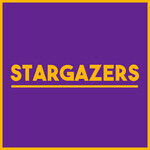Q: I've noticed many writers and reporters are using the term "podium" when they mean "lectern." For example, an Associated Press story stated, "He stood behind the podium." Shouldn't he be standing on the podium and behind a lectern? — Barron Bianco, Saxonburg, Pa.
A: Yes. Careful speakers and writers still observe this distinction. The sentence you cite is correctly rendered as: "He stood behind the lectern."
One way to remember the difference between these two words is to consider their Latin roots. "Podium" derives from the Latin root "pod-," meaning "foot," so a podium is a base or platform under your feet. "Lectern" derives from the Latin "legere," meaning, "to read," so a lectern is a stand that supports a script or book for a reader or speaker.
Q: I am very often rankled at the misuse of adjectives as adverbs. Nowadays, I hear people using adjectives to modify verbs, e.g., "Eat healthy," "Drive smart," and "Live adventurous." Did I miss a rule change, or is the language morphing over time to allow this? — Kate McLean, Baton Rouge, La.
A: The language may be morphing, but at least it's morphing smart. The verbs "eat," "drive" and "live" are normally action verbs that should be followed by an adverb ("Eat slowly," "Drive carefully," "Live fully").
But sometimes, these verbs are used as linking verbs to convey not action but a state of being, e.g., "Eat to be healthy," "Drive as if you're smart," "Live to be adventurous." In each case, the adjective is modifying, not the verb, but the implied subject, "you."
"Eat healthy" means something different from "Eat healthily" (swallow food carefully?) and "Drive smart" means something different from "Drive smartly" (make turns in a stylish way?). Similarly, "Live adventurous" refers to your general outlook or lifestyle, while "Live adventurously" denotes performing specific actions in adventurous ways.
Advertisers love phrases like these because they're catchy — "Bank happy!" "Shop smart!" and "Eat natural!" — and so do journalists. In film reviews, couples often "meet cute" or "crack wise"; in sports stories, teams "play tough"; in weather reports, the radar "scans clear."
Whether to accept these usages is a judgment call. As long as the adjective describes the subject and not the verb, they're grammatically correct. But you're certainly entitled to complain about them. If you do, gripe strong!
Rob Kyff, a teacher and writer in West Hartford, Conn., invites your language sightings. Send your reports of misuse and abuse, as well as examples of good writing, via e-mail to [email protected] or by regular mail to Rob Kyff, Creators Syndicate, 737 3rd Street, Hermosa Beach, CA 90254






View Comments